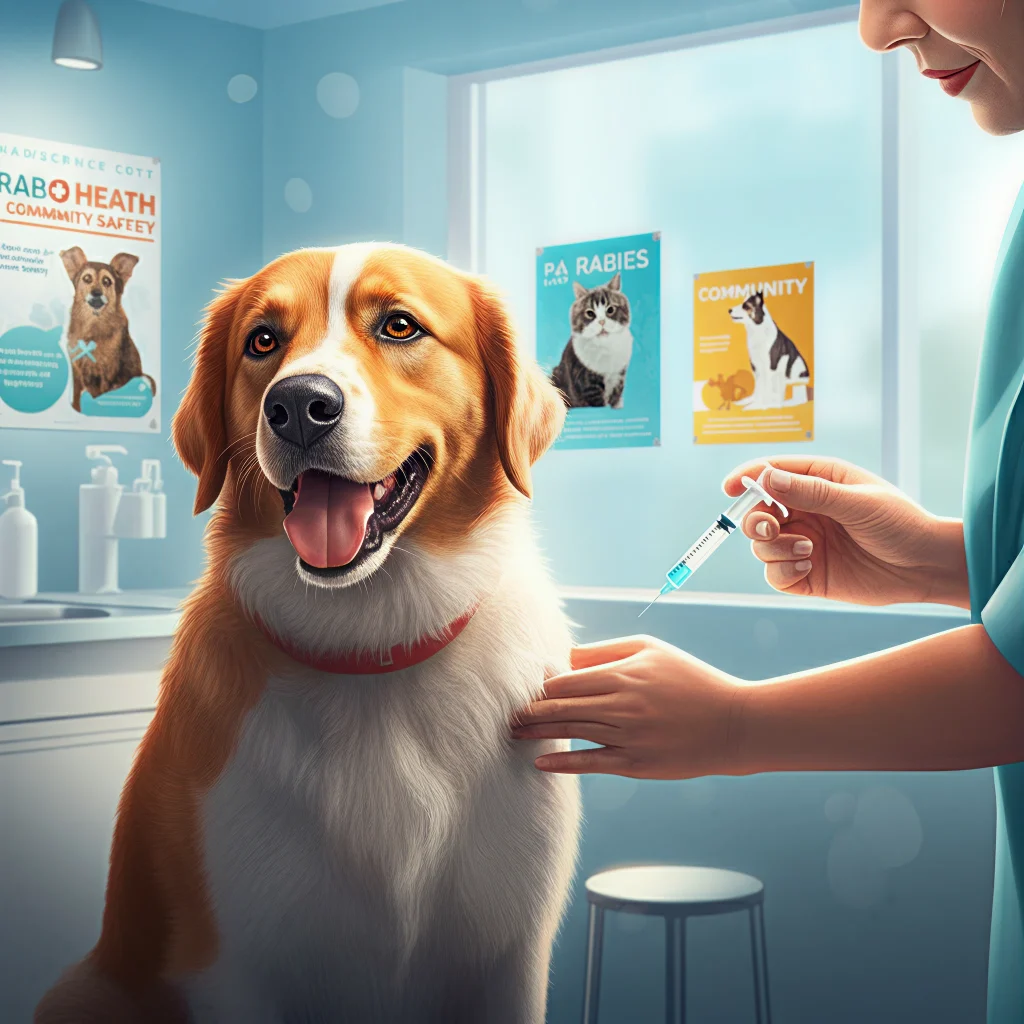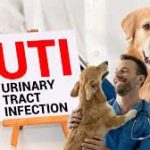Rabies is an unsafe disease that impacts animals, humans, and other animals worldwide. As soon as signs appear, the condition is usually fatal, making prevention vital. The rabies vaccine is the best way to protect your pet and your home from this deadly virus.
This guide will discuss what you require to understand about the rabies vaccine for dogs. It covers its significance, the vaccination schedule, possible side impacts, and legal requirements. By the end of this post, you will see why immunizing your canine against rabies is important.
Why Rabies Vaccination is Essential
Rabies is a highly contagious viral disease transferred through the saliva of infected animals, often through a bite. Sadly, the disease is normally deadly once signs appear. It impacts the central worried system in both animals and people.
Dog vaccinations contribute to your animal’s defense, it keeps people safe and healthy. This is why it’s important:
Safeguarding Your Dog from Rabies: A rabies vaccination keeps your pet dog safe from this deadly virus. It assists ensure a healthy life.
Public Health: unvaccinated animals can spread out rabies to other animals and human beings. Rabies avoidance forms a critical part of neighborhood disease control.
Legal Requirements: Many locations in the United States need rabies vaccinations for pet dogs by law. Keeping your pet immunized helps you remain compliant and prevent large fines.
Put simply, a rabies vaccine provides assurance, understanding your pet dog and household are safe from this serious threat.
Understanding the Rabies Vaccine
How the Rabies Vaccine Works
The dog rabies vaccine gives a small, inactive part of the virus to your dog. This helps their immune system respond. This process helps your dog’s body recognize and fight off the virus if it encounters the virus in the future. Think of it as an immunity training course that equips your dog to tackle rabies effectively.
Benefits of the dog rabies vaccine
- Prevents Spread: Vaccinated dogs act as a barrier, preventing the spread of rabies within the community.
- Peace of Mind: You can enjoy spending time outdoors or traveling with your dog without worrying about rabies exposure.
- Cost-Effective Prevention: Treating rabies exposure in humans and unvaccinated animals can be costly and stressful. Vaccination is a safe and cost-efficient prevention method.
Vaccination Schedule for Dogs
When Should Get Their First rabies vaccine for dogs?
Puppies typically receive their first dog rabies vaccine when they are 12–16 weeks old. Early vaccination protects your dog during a critical developmental phase.
Booster Shots
Rabies vaccines require regular boosters to maintain their effectiveness. Here’s a general guideline:
- One-Year Vaccine: Renew every year.
- Three-Year Vaccine: Get a renewal every three years after the first shot. Follow your local laws or your vet’s advice.
Always consult your veterinarian to determine the most suitable schedule for your dog.
What to Do if You Miss a Vaccination
If you miss your dog rabies vaccine schedule :
- Contact your veterinarian immediately to reschedule.
- Your dog may need to restart the vaccination series depending on the lapse duration.
- Avoid contact with wildlife or unvaccinated animals until your dog is back on track.
Potential side effects of rabies vaccine
Common Mild Side Effects for dogs
Dogs often experience mild side effects after vaccination. These include:
- Swelling or soreness at the injection site
- Slight lethargy or a decrease in appetite
- Mild fever
These symptoms generally resolve within 24–48 hours and don’t require intervention.
Serious side effects of rabies vaccine (Rare)
Although rare, some dogs may have severe reactions. Watch out for these symptoms:
- Vomiting or diarrhea
- Difficulty breathing or swelling around the face
- Excessive drooling or confusion
If you notice serious side effects, contact your veterinarian immediately to ensure your pet receives appropriate care.
Caring for Your Dog After the Vaccine
- To ensure a smooth recovery after vaccination:
- Provide your dog a quiet, comfortable space to rest.
- Avoid strenuous activities for 24 hours.
- Monitor their behavior and check for unusual symptoms.
Rabies Vaccination Laws and Regulations
Legal Requirements in the USA
Rabies vaccination laws vary across states, but nearly all require dogs to be vaccinated against rabies. Ensure you are familiar with your local legal requirements to avoid penalties. Many states provide vaccination certificates or tags as proof, which are especially important for travel or boarding facilities.
Public Health and Rabies Control
Vaccinated pets act as a critical barrier to the spread of rabies within communities. Mass vaccination campaigns for dogs have successfully controlled and eliminated rabies in several countries. Vaccinating your dog contributes to this greater effort.
A Life-Saving Vaccine for Your Dog and Community
Rabies vaccination for dogs isn’t just a box to check off your pet care list; it’s a life-saving act of responsibility. It protects your dog from a fatal disease, safeguards your family, and promotes public health by preventing the spread of rabies.
Keep your dog’s health by following vaccination schedules. Watch for side effects of rabies vaccine and build a good relationship with your vet for regular check-ups.
Empower Other Dog Owners
Share this guide with dog-loving friends or new pet parents to help protect more pets and families from the deadly disease.
Conclusion: In conclusion, vaccinating your pet dog against rabies is a responsible choice for pet owners. It helps protect your dog’s health and the safety of your family and community.
Rabies is a deadly infection. Luckily, a vaccine can completely prevent it. By following the vaccination schedule, you can keep your pet safe.
It is also important to follow the laws locales. This helps protect your pet from serious illnesses. You also help control its spread in the community.
The benefits of rabies vaccination go beyond just protecting your pet and It also helps public health.
Vaccination prevents costly treatments for rabies exposure. It keeps your home and community safe too. Remember, the few minor side effects that may happen are usually short-lived. The protection the vaccine offers is much greater than the risks.


